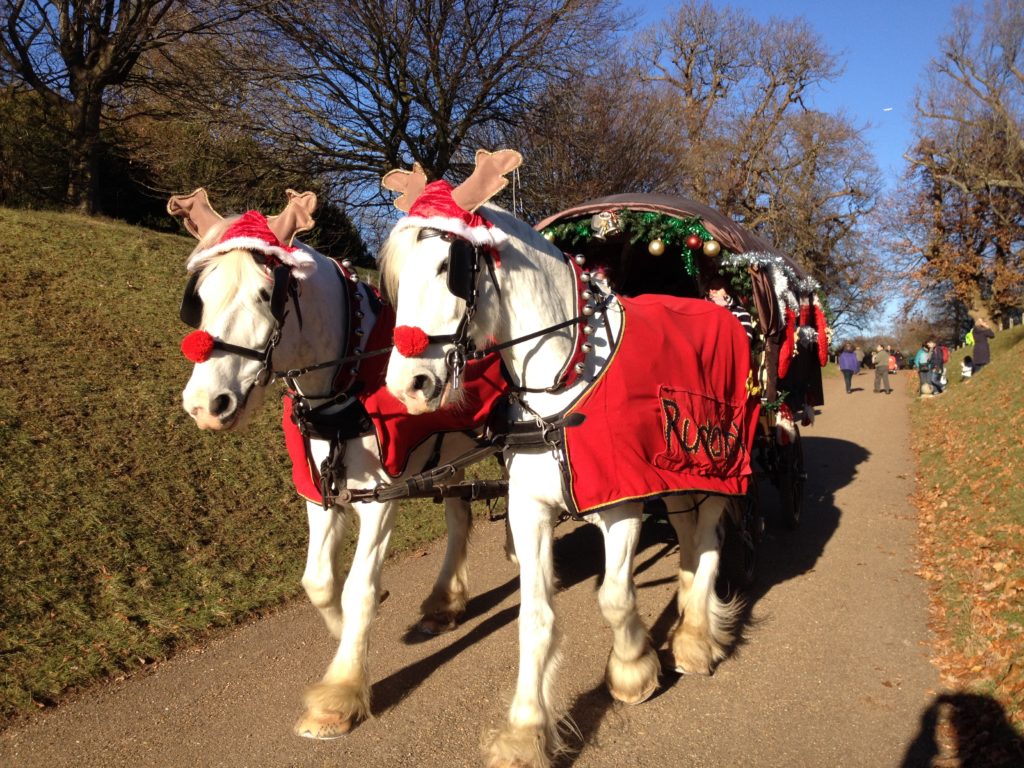Christmas can be a crazy time for all families, especially if your youngster/youngsters are on the autism or ADHD spectrum.
Within these neuro-types, you also need to take into account your child’s temperament, siblings, whether you are a neuro-different parent and your partner, or whether you are trying to raise a family without support.
Yes, there are many variables, which makes drawing up a list of how-to’s virtually impossible. But I will try to curate a list of what’s worked for me over the years.
One of my strongest and happiest memories was being at home with y daughter not having a full Christmas dinner as I didn’t organise myself in time as I was working. The two of us, ate our meal in the middle of the afternoon, in our pyjamas with no visitors, no interruptions. She had plenty of time to play with her toys, I had plenty of time to slob about and de-compress. Life as a single mum was hard. But I remember feeling happy at that moment: there were no complex family situations to navigate, I hadn’t gone into debt buying presents I didn’t have the money for, and there was no one to judge the state of my kitchen or the sparse decorations. I thought of the many people who didn’t have a roof over their head at Christmas and felt incredibly fortunate.

Another Christmas that floats into my mind as being particularly special was waking up on Christmas morning and listening to carols on the radio and enjoying the warmth of the quilt around me as I snuggled up with my infant son.
I’m not an introvert, but I do find the hype and excitement of Christmas quite overloading and anxiety provoking.
If you’re neurodiverse yourself, or in a family with autistic, ADHD youngsters the best I can do is share what works for us:
1, Make a list of gifts and share with close family only. Create a Christmas card list too, ask your children are there any new friends/teachers they would like to add to the list? Prioritise the ones you need to post and you can leave the local, neighbour ones until a few days before. Include some low-cost, jokey presents in your list to get across the message that the cost of the gift doesn’t equate to how much the gift-giver loves or values you.
2. Be clear and precise about what you would like, including a range of gifts. Managing expectations is hugely important; it’s okay to say to your children, I don’t think I will be able to get X & Y this year, which one would you prefer? Managing expectation across all aspects of Christmas is a good idea for the whole family, not just your kids.
3. Surprise parties are not on our menu, too much instability in that: the numbers, what will everyone eat, where is it going to be, how will the guests react…? Not one I recommend, for an autistic child who may love routine and struggle with the overwhelm of Christmas anyway. However, an energetic ADHD youngster may love organisation (and being in charge of) a gathering that focuses on their special interest and create their own games, rules and enjoy this immensely.
4. Talk to family and guests about your child’s condition, and perhaps outline what’s happened this year, so they can (hopefully) be sensitive when talking to your child. Who doesn’t cringe when an aunt or uncle says, and how are you getting on at school, luv? (Not great if their anxiety has meant that they’ve not been going in since September…)

5. ADHD brains can mean kids burn energy quickly and need replenishing snacks at frequent intervals. Expecting them to eat nothing and ‘wait’ for dinner at 3pm might be too much, when blood sugars have dropped. Make sure you have a supply of nourishing snacks to keep them going – pitta bread, hummus, bread sticks, raisins, easy peelers, apricots, or whatever is on their favourites list. The link between the brain and the body is especially marked in neurodiverse children, so running on empty is to be avoided at all costs, and running on too much sugar can also create mood swings, which can be difficult to manage. Autistic, ADHD brains also prefer slower transition – Christmas can be fast-moving with overload at every corner, food conversations, different houses, unfamiliar smells, people, unclear expectations, subtle family tensions, try to slow everything down, or limit your exposure much as you can.
6. Talk to your children about what to expect, more noise, drunken adults, stronger smells, overheating, strong feelings of excitement, high emotion from other people… if the level of sensory overload pushes your child’s threshold of tolerance too high, encourage them to chill out either in their room or somewhere else. This is why the a pre-talk with relatives comes in useful. They don’t feel rejected or offended if their grandchild absents themselves for and hour or so. Re-assure Auntie or granny, it’s not personal.
7. Don’t try to pack too much in, driving across the country from one relative to another, may be a transition too far. The holiday won’t feel restful for your child or you, especially if you are doing hundreds (well, a lot) of social interactions. The requirement to concentrate on the conversations, the body language, understand and de-code the jokes, say the right thing if you don’t like the present, is pressurising. Keep it simple, remind yourself what the meaning of Christmas is and how you can simplify everything down to its purest form. Giving, receiving, loving, sharing. No price tags.
8. Include your children in as much as they are happy with, explain why you soak the fruit for the Christmas cake, why you put the stuffing in the oven last. Crafts and home-made gift-giving serves the dual purpose of using creative skills, filling time gaps and evening out energy levels and can help to save money too.: ‘Make a cup of tea for someone older than you!’ ‘Do a helpful thing for someone outside of your family/in your street. You could strive to end the year with positive memories: the thing that I lived best this year was…… because…. (use words, draw pictures, make up a silly song etc.,)
9. ADHD brains seek stimulation – negative or positive – so you need to ensure there is plenty of stimulation during the Christmas period to provide, this. If your child is on medication, try to keep the dosage regular, it will help to minimise the more intense ‘crashes.’
10. Many children are unsettled by the amount of change they’ve experienced this year in their daily, domestic life. Staying at home at Christmas may help them to re-ground and talk to those close to them about what is happening in their internal world, as well as the wider world. Be present with your children.
Resting, self-care, eating beans on toast in your dressing gown is modelling to your kids that you prioritise you and they will learn that it’s ok for them to prioritise themselves too. And if the weather is kind, develop a habit of going for a long refreshing, walk in a local park, it will help everyone to slow down and be in the moment.
YOU are easily the best gift you can give your child.
© Suzy Rowland 2021
